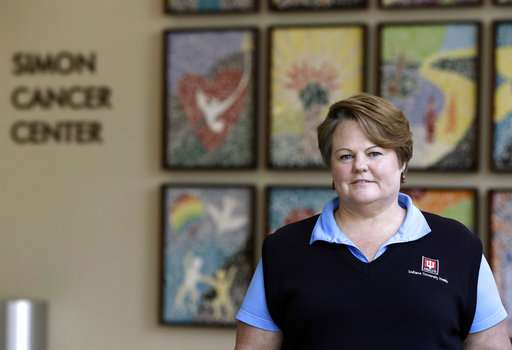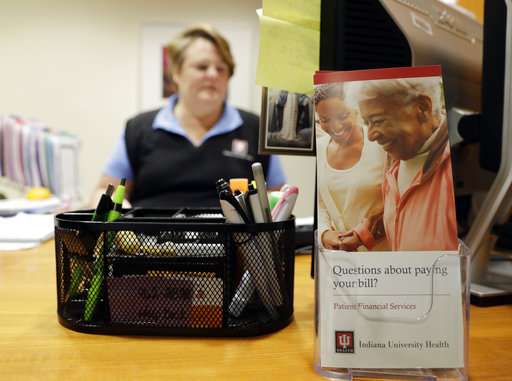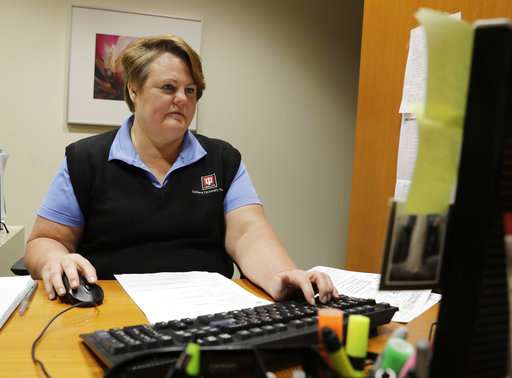Talking money with the hospital trying to treat you

The financial counselor will see you now.
Many people hit with a terrifying medical diagnosis like cancer also have to deal with another worry: whether the care will bankrupt them.
Insurance that covers less and soaring treatment costs can swamp patients with piles of unexpected bills. To help ease money worries, hospitals and other care providers are increasingly using counselors to guide patients and, in some cases, arrange for financial help.
Financial counselors can tell patients about help they didn't know existed or coax them into accepting assistance they might be reluctant to request on their own. But they also work for the hospital or medical group doing the billing, so patients should seek a second opinion before making a big financial decision.
HOW DO COUNSELORS HELP?
There's no set formula for what they do. They might start by reviewing a patient's health insurance or checking if some other coverage can help pay bills, like a worker's compensation or auto policy for people who have been in an accident. They also can give cost estimates for care based on the coverage or alert patients if their insurer wants to approve a treatment before it happens.
"Many patients rely on us to explain how their health benefits work," said Margie Barton, a financial counselor at the IU Health Melvin and Bren Simon Cancer Center in Indianapolis. "They are preoccupied with just getting well again."

Counselors may suggest how to get financial help or assist with the paperwork. They can tell someone if they are eligible for a hospital charity program or connect them to a free drug supply or discounts from the manufacturer. They may also find charities to cover expenses like groceries or arrange transportation to medical appointments.
"Many times people don't even realize what's available until they are sick and they need it," said Richard Gundling, a senior vice president with the Healthcare Financial Management Association, which represents finance officials at hospitals and other medical settings.
WHO GETS THIS HELP?
A hospital may refer anyone seeking expensive care to a financial counselor. That frequently includes cancer patients and also neurology or rheumatology patients.
Counselors review every patient's treatment plan at Barton's cancer center, which sees hundreds of patients every week. Five years ago, only about half the plans were reviewed.
Barton says about 80 percent of the people they review will need some help with a significant expense. That percentage has climbed dramatically in the last few years.
Some chemotherapy regimens can cost $20,000 per dose, and it's common for annual deductibles—the amount a patient pays before coverage starts—to climb as high as $6,000.

That can hit cancer patients especially hard because this expense generally resets at the start of the year, so someone in the middle of treatment may have to meet the deductible more than once over the course of treatment.
CAN YOU TRUST THE COUNSELORS?
They can offer many resources for help, and they understand what patients are going through.
But patients should still seek a second opinion before making a major financial decision like signing up for a loan or a payment plan, said Caitlin Donovan, a spokeswoman for the Patient Advocate Foundation, which helps patients deal with medical bills and problems accessing care.
Patients need to make sure the amount they owe is correct and that a lower total cannot be negotiated. Sometimes, a discount can be bargained in return for one payment in full. They also should make sure that terms are manageable and they don't qualify for additional help.
Many nonprofit agencies are available to help with billing issues. Patients also can hire billing advocates, but they will take a fee or a portion of any money saved as payment, Donovan said.
© 2017 The Associated Press. All rights reserved.














